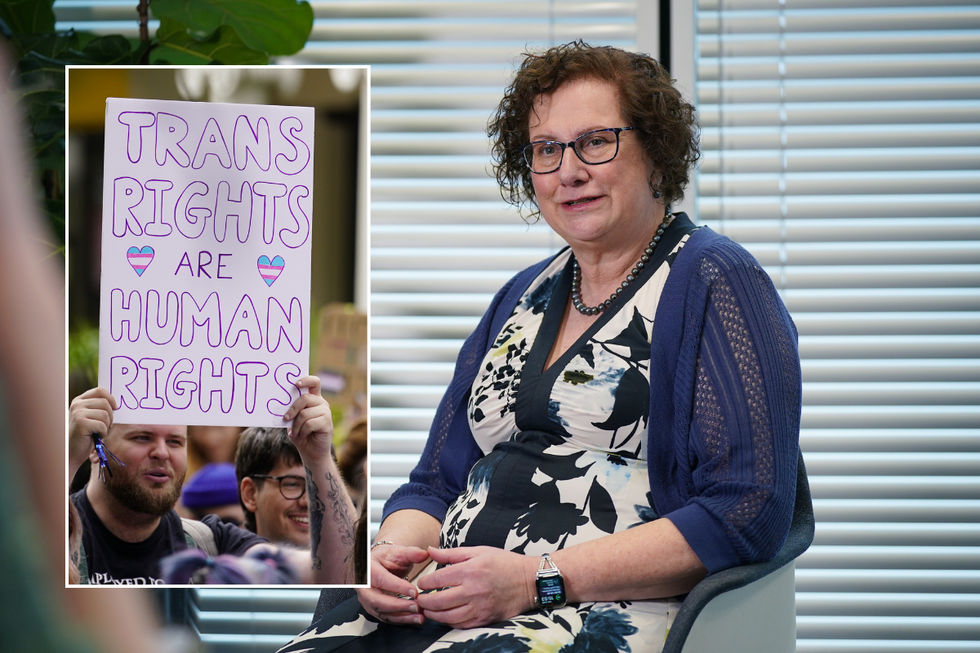
Dr Hilary Cass has hit back at the British Medical Association (BMA) after it announced it opposed the findings of her review into NHS services for transgender children.The Cass review, published in April, recommended an end to the practice of prescribing puberty blockers to children outside clinical trials, and suggested a more “holistic” model of care for young people questioning their gender. While both the NHS and government accepted the review, the BMA highlighted concernsabout “weaknesses in the methodologies” used by Cass and “unsubstantiated” recommendations.Now, Dr Cass has said the doctors’ union had no evidence to back up its critique of her review, and that the BMA’s stance represented only a “small minority” of the medical profession.Dr Cass has hit back at the BMAPACass told the BBC: “I found the BMA position puzzling because they haven’t actually said what it is they object to about my recommendations … Do they object to better training? Do they object to better research?”There will always be a spectrum of opinion in medicine: that’s the way of the world. But I think the difference between the BMA’s position and mine is that I’ve spoken to hundreds of doctors as well as other clinical staff, both during the course of the review and since the review.”The vast majority of those people in national meetings and in one-to-ones and in work groups are really supportive of the approach. So I feel that those who take issue with it are in a relatively small minority within the medical profession.”Dr Cass said the BMA’s critique was based on “online sources mainly from the US”, adding: “When thinking about evidence-based care, they haven’t produced any evidence that the review should be stopped.”LATEST DEVELOPMENTSThe British Medical Association (BMA) raised concerns about the planPAThe BMA’s governing council voted to reject the Cass review in a private meeting in July but the union’s membership base of 195,000 doctors was not consulted.Professor Philip Banfield, chairman of the BMA council, said: “The BMA is not aiming to replicate the Cass review. The chair of our ‘task and finish’ group has set out to [the] council how we will listen to those with lived experience either as patients or as clinicians, consider the link between evidence and recommendation, and compare the recommendations with the actions or strategies that have arisen from them.”According to the founding principles of the BMA, our evaluation will be evidence-led, starting from a position of neutrality. I cannot predict the outcome of our evaluation. “However, I am clear that we will hear different perspectives, always prioritising the needs of transgender children and young people, who deserve the very best care.”BMA council chairman Phililp BanfieldPANHS England stopped the routine prescription of puberty blockers in March, with NHS Scotland following in April. In May, the then Conservative government also issued an emergency order banning private prescriptions of the drug.Meanwhile, the waiting list for children’s gender care is growing. According to NHS England’s own figures, more than 5,700 under-18s are waiting an average of 100 weeks for a first appointment in England and Wales.One 17-year-old trans boy, Grin, told The Guardian the outright ban imposed by the government this year was “a performative gesture.”He added: “The chance of getting blockers at a point in your development when they are actually useful was effectively zero before it; there already was no access.”It’s really scary being a young person just working out who you are, and to know that your puberty is progressing in a way that you don’t feel aligned with – you feel trapped, my body was changing in a way I actively hated.”People take part in a Trans Pride protest march in BrightonPACoven, an 18-year-old trans girl, said: “From my experience, young trans people don’t have access to healthcare. The waiting lists are long and cruel, the prices of a private clinic are unrealistic, and other routes are uncontrolled and not often monitored by medical professionals.”Every pathway looks bleak right now…I’ve had to become my own doctor, do all my own research, spend so much time analysing blood tests on my own. Don’t I deserve someone to oversee my care?”In a separate development, the Royal College of Psychiatrists has cut all ties with the Stonewall charity amid concerns about its stance on transgender issues.College’s chief executive Sonia Walter and president Dr Lade Smith said: “Stonewall helped us to become a more inclusive organisation. However, we are acutely aware that there is a risk in being affiliated with an organisation that may speak on matters relating to the professional practice of our members, but over which the college has no direct control.”